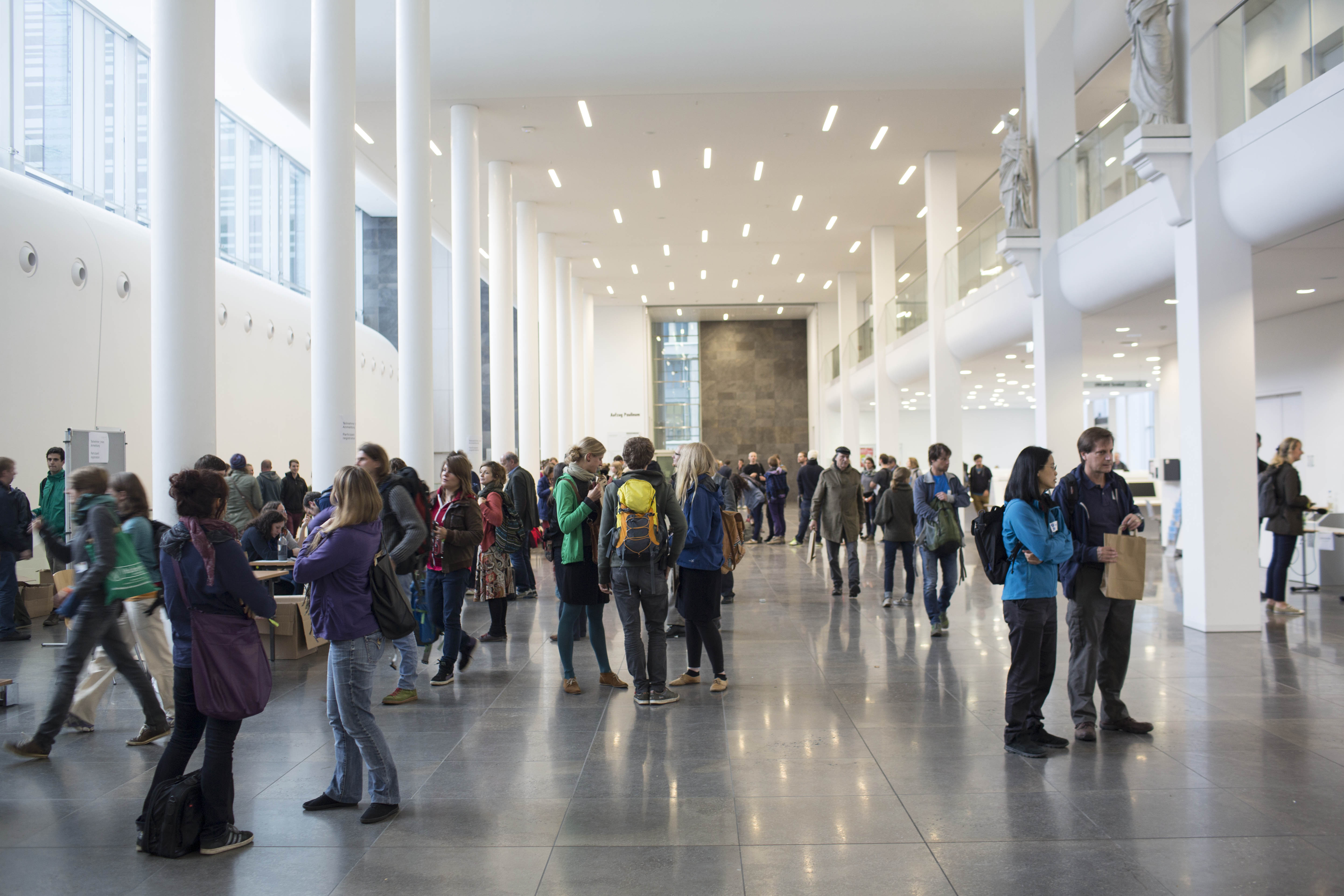Finally it is done: all texts from the project "Degrowth in Movement(s)" to be published in English are now available online. Representatives from different social movements share their perspective on degrowth and illustrate commonalities, differences and points of critique. In Germany, last year's publication of the respective German texts, videos and pod casts marked the kick-start for an open dialogue between the participating movements in order to foster mutual learning and developing common strategies. The dialogue is still going on – urgently needed in times where the many alternatives to right-wing opposition to the status quo seem to lack visibility.
When I joined the organizing team of the Leipzig-Degrowth-Conference back in 2013, I was – quite naively – hoping that degrowth could become the one conceptual frame able to unite the many colourful and multifaceted movements for a deep social-ecological transformation. Didn't they all share the same values such as cooperation, solidarity, and communal self-determination and global ecological and social justice; in short: the good life for all paired with respect for the biosphere and other creatures? And wasn't breaking free from "growthism" or even capitalism a central precondition for the realization of these values? Wasn't the degrowth-movement itself open, colourful and diverse enough to become, theoretically and hypothetically at least, an umbrella for all these movements?
Very quickly, not least at the 2014 Degrowth-Conference in Leipzig itself, I had to learn that the variety of existing movements and alternatives is in sum even more colourful and diverse, and thus rightfully resists becoming reduced to a particular concept, as open and transformative it might be. This variety didn't keep them, however, from dreaming the same dream of a large social movement that can stand up to the capitalist mega-machine with all its destructive effects and make visible the large number of people that already wants to think society and economy anew.
And so I was not totally wrong: degrowth indeed seems to be a perspective or proposal that is or can become an integral part of other perspectives and social movements. And yet such integration can easily fail due to existing scepticisms, prejudices and misunderstandings about the different perspectives, assumptions, traditions, strategies and protagonists both within degrowth circles as well as within other social movements.
Between the poles of the various and multifaceted thematic threads on one hand and the aim to collaborate and become more visible on the other hand, Degrowth in Movement(s) gives room and opens up spaces for mutual understanding. This includes a thorough discussion of the said scepticisms, prejudices and misunderstandings as well as opening one's own perspective to the critical views of others. In order to facilitate this process, representatives from 19 different fields describe their work and history, their similarities and differences to others and possible alliances. From the solidarity economy to the refugee-movement, from unconditional basic income to climate justice, from care revolution to the trade unions – they all answer the following questions:
What is the key idea of your social movement or stream (most important critiques of the current system, central arguments, visions for alternatives), how did it develop historically and what theory of change is employed?
Who is part of the social movement, what do they do (social stratification, how and where are they organized; who are its protagonists, which groups, alliances etc. exist)?
How do you see the relationship between your social movement and degrowth and how can or should this relationship develop in the next few years? How is the relationship to other social movements? (Relationship means e.g. similarities, differences, conflicts, alliances etc.)
Which proposals does your movement have for the degrowth perspective? (What is missing, which areas are not taken into account adequately, what is underestimated, what themes, questions, problems are discussed one-sidedly, insufficiently or not at all?) Which proposals can the degrowth perspective offer to your movement?
Space for visions, suggestions or wishes, e.g.: From the perspective of your social movement and in relation to degrowth which opportunities do you see for the development of a strong common emancipatory social movement in the current political context (ongoing crises, emergence of right wing parties, post-democracy etc.?) What should a larger social movement look like for you to join?
What's most exciting about these texts is that they encourage a shift in perspective and the adoption of a broader view, regardless of whether one is already familiar with the discourses or entirely new to them. Thoughts like "true, one can also see it that way!" and "how interesting, this never came to my mind" or "yes, I need to bear that in mind in the future - I really had a blind spot" pop up and make you want to read, learn and discuss more.

My colleagues and I wrote an initial blog post arguing that the question of strategy has received too little attention in the degrowth movement, and by degrowth scholars. Further, we observed that the discourse on strategy in degrowth was excessively plural, being open to all strategies in all contexts, rather than considering case-appropriateness (spatially, temporally, sectorally etc.). Th...

By Christiane Kliemann When listening to all the keynotes, panels and sessions, or simply joining the lively discussions between conference participants, there is the notion of an overall agreement that a broader new vision for society and the economy is most urgently needed. However, the elephant in the room is that such vision is almost impossible to shape, if it is to represent the diversi...
The Stream towards Degrowth has begun to flow! Political, scientific and artistic institutions and initiatives as well as individuals are all part of the current of a growth-sceptic public. We started the stream on the 27th of November in Jena, Germany. Now we're looking forward to gathering reports, debates and points of views - in order to show the problems of the fixation on growth and to pr...